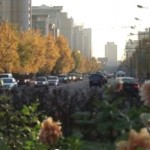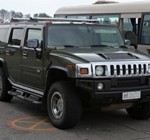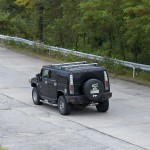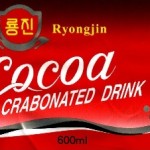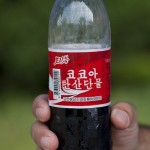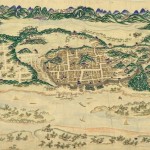According to Yonhap:
North Korea’s former Premier Pak Pong-ju appears to have returned to power with the Workers’ Party, more than three years after he was ousted due to his economic reform drive, according to a Pyongyang broadcast report on Saturday.
The North’s Korean Central Broadcasting Station introduced Pak as the “first deputy director of the Central Committee of the Workers’ Party of Korea,” reporting on the 50th foundation ceremony of Pyongyang’s flagship Okryu Restaurant held Friday with a number of senior officials and workers.
There is no other known figure with the same name among the North Korean power-holding elite.
Pak, a long-time industry technocrat and pragmatist, was named premier of the North’s Cabinet in September 2003. He spearheaded the North’s so-called July 1st Economic Measure reform drive toward market economy, which aimed to give more autonomy to state firms and gradually reduce state rationing of food and daily necessities.
But his strong initiative triggered a backlash from the party and the military that resulted in his dismissal. Pak was suspended from duty in June 2006 on charges of fund apprehension and was fired in April the following year. Kim Yong-il, then land and marine transport minister, replaced him.
Pak is believed to have been demoted to a managerial post at a clothing factory outside Pyongyang.
Cho Myung-chul, a senior researcher at the Korea Institute for International Economic Policy who has defected from North Korea, viewed Pak’s reinstatement as a signal of a shifting North Korean economic policy toward pragmatism, following its failed currency reform last year.
“Pak is an emblematic figure of the July 1st Economic Measure that promoted pragmatism. His reinstatement could be connected with an economic policy shift back to pragmatism after the anti-market currency reform failed.”
In a bid to curb the burgeoning merchant class and strengthen its socialist system, North Korea implemented a surprise currency reform in November, knocking two zeros off its denominations. But the move backfired, worsening food shortages and triggering social unrest.
Apparently taking responsibility for the botched reform, Premier Kim Yong-il was replaced by Choe Yong-rim in June.
The broadcast report on Saturday did not specify which department of the Workers’ Party Pak joined, but it is likely that he was posted to the light industry department, considering the ceremony involving a restaurant and the fact that he was the department’s first deputy director in 1993.
Pak is believed to be a close confidante to Jang Song-thaek, vice chairman of the National Defense Commission and brother-in-law of North Korean leader Kim Jong-il. Jang is seen as the central figure in grooming Kim’s third and youngest son, Jong-un, as the next leader.
Japan’s Mainichi Shimbun reported on Aug. 15, quoting multiple sources, that Pak and about 20 other figures close to Jang had been reinstated within the past two years. The report also said Pak has risen to the second highest spot in the party’s light industry department, which is headed by Kim Kyong-hui, Kim Jong-il’s sister and Jang’s wife.
According to the New York Times:
He is the latest among senior North Korean officials whose sudden banishment and equally unexpected reinstatement have sparked outside speculation about Mr. Kim’s intentions. Mr. Pak appeared to have fallen from Mr. Kim’s favor when he was fired from the premiership in 2007 and sent to work as a factory manager in a provincial town.
“His reinstatement could signal the return of pragmatists and reformists,” said Cheong Seong-chang, a North Korea analyst in the Sejong Institute south of Seoul. “We may be able to see him push the economic reform and openness he had once championed.”
Analysts in Seoul say that few North Korean officials wield much individual influence in Mr. Kim’s government. But they say that they can infer Mr. Kim’s plans from the way he punishes and rewards officials identified with various policy approaches.
“Pak’s reinstatement indicates that North Korea is shifting back to market reforms, even if grudgingly, after its botched attempt to re-enforce state control on the economy,” said Baek Seung-joo, the head of North Korea research at the government-financed Korea Institute for Defense Analyses in Seoul.
Mr. Pak, a lifetime technocrat, was best known as the architect of “Measures to Improve Economic Management Order.” Issued on July 1, 2002, they indirectly acknowledged the failure of the North’s ration system by instructing factories, collective farms and other economic units to provide their own daily necessities and give incentives for workers.
In September 2003 Mr. Pak was made prime minister, a post in charge of carrying out economic policies.
His reforms were necessitated by the collapse of the centrally planned economy after a famine in the mid-1990s. But they also coincided with — and fueled — the spread of private markets, which quickly emerged as a key source of food and other necessities for North Koreans.
But Mr. Pak’s reform programs irked the government’s old guard, especially in the hard-line military, which had grabbed the lion’s share in trade under the old system. The markets facilitated the influx of DVDs and other smuggled goods the government considered a capitalist threat.
Around 2005, North Korea began controlling markets. Its attempt to reinforce state control on the economy peaked late last year when it replaced its banknotes with a new currency, shut down markets and ordered people to buy goods only from state-run stores. The currency reform was aimed at stifling the markets by drastically reducing traders’ personal wealth in the old currency.
The moves quickly backfired. Inflation surged as traders hoarded their goods and government stores failed to meet demand. Sporadic protests were reported. Earlier this year, Pak Nam-gi, head of finance and planning who led the failed currency reform, was executed, according to South Korean news reports. North Korean markets began coming back to life, according to recent defectors.
Pak Pong-ju, the former prime minister, returns as North Korea prepares for a party caucus early next month. Officials and analysts in Seoul say they will monitor the meeting for changes in the cabinet and party leadership that might provide clues to Mr. Kim’s plans to hand over power to his third son, Kim Jong-un, who is in his late 20s.
Mr. Pak’s reinstatement adds to the growing influence of Jang Song-taek, Mr. Kim’s brother-in-law, said Mr. Baek, the researcher.
In June, Mr. Kim presided over a session of the rubber-stamp Supreme People’s Assembly where Mr. Jang, a potential caretaker for his son, was elevated to the No. 2 post in the ruling hierarchy. In the same meeting, Mr. Pak’s successor as prime minister, Kim Yong-il, who reportedly made a rare apology in February for the botched currency reform, was fired.
Mr. Pak, as first deputy director, is believed to report directly to Kim Kyong-hee, Mr. Kim’s younger sister and Mr. Jang’s wife, who works as party director in charge of the North’s light industries, Mr. Cheong said.
Read the full stories here:
N. Korean ex-PM Pak Pong-ju appears to be back in power
Yonhap
8/21/2010
North Korea Reinstates Market-Oriented Official
New York Times
Choe Sang-hun
8/23/2010

